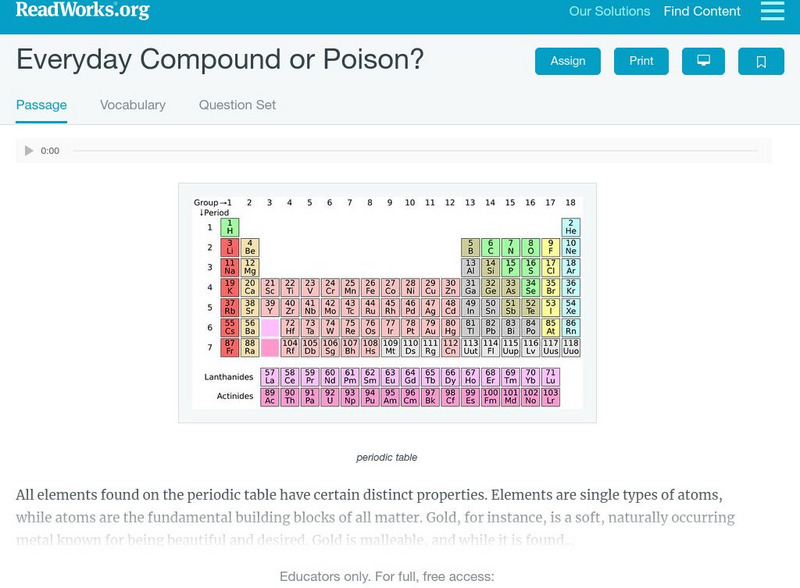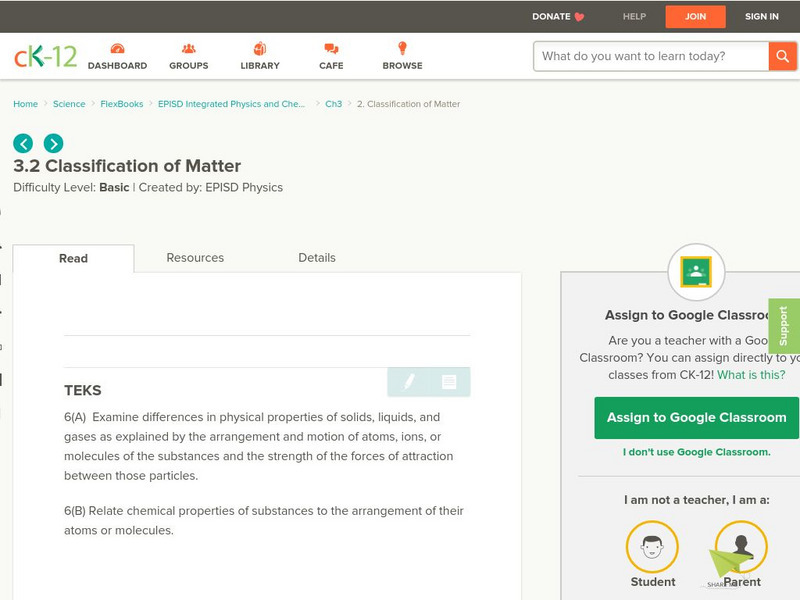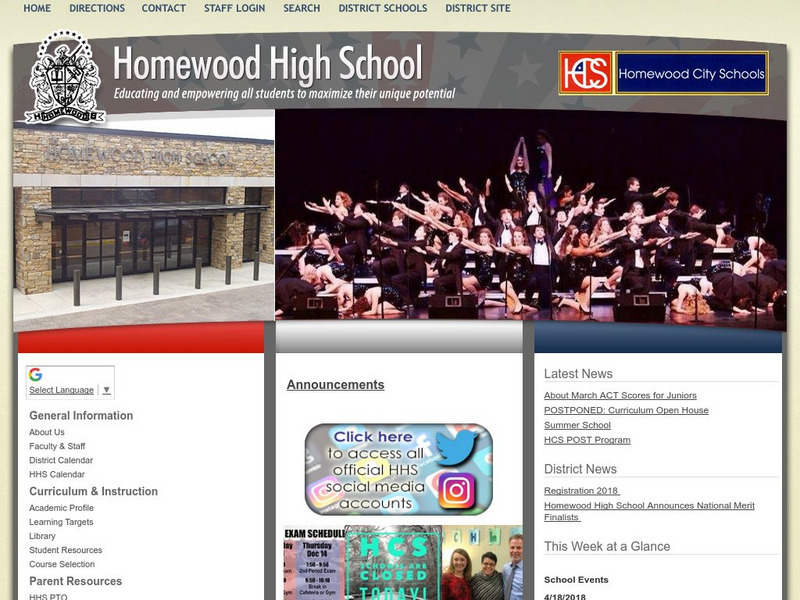Hi, what do you want to do?
Curated OER
Revised “Understanding Nutrition” Activity
High schoolers evaluate their current food choices. In this health science lesson, students test different drinks to rate the amount of Vitamin C content. They discuss results in class.
Curated OER
Effects of Ozone in the Air
Fifth graders learn how ground-level ozone is an air pollution problem. Students measure ozone levels and graph the results.
Curated OER
A TOUGH NUT TO CRACK
Based on a set of criteria, students will evaluate the quality of pecans.1. Bring a gram scale and papershell pecans. Provide five pecans for each student. 2. Divide the class into groups of five and provide each member with five pecans....
Curated OER
Transport
Students analyze wind barbs and determine which way the wind is blowing and how hard the wind is blowing. They access near real time wind data and pollutant animations to track the transport and destination of pollutants.
Curated OER
Urban Impact on Chollas Creek (California): A Field Study
Students, in groups, take samples from a creek and keep a field journal on their samples. They also perform tests on their samples.
Curated OER
What's the Connection to Me?
Students discuss the impact of oil spill to the environment and to their daily lives. In this environmental science lesson plan, students research the pros and cons of petroleum based products. They share their findings in class.
Utah Education Network
Uen: Forming Ionic Compounds
Students will practice making and recording observations about various compounds and their aqueous solutions, write the formulas for the compounds, then perform chemical reactions and write the names and formulas of the products.
CK-12 Foundation
Ck 12: Physical Science: Chemistry of Compounds
[Free Registration/Login may be required to access all resource tools.] Explores chemical compounds and how elements form different compounds.
Read Works
Read Works: Everyday Compound or Poison?
[Free Registration/Login Required] An informational text about how chemicals can be combined to form safe or unsafe compounds. A question sheet is available to help students build skills in reading comprehension.
CK-12 Foundation
Ck 12: Life Science: 2.1 Elements and Compounds
Learn how basic elements form molecules to support life.
Chiral Publishing
Chiral Publishing: An Introduction to Chemistry: Compounds and Chemical Bonds: Audio Book
Did you ever wonder how or why atoms bond together? This interactive tutorial sheds some light on why bonds form and the difference between ionic and covalent bonds.
Science Bob Pflugfelder
Science Bob: Homemade Slime!
Contains a procedure for creating slime -- a polymer formed by mixing water, borax, Elmer's glue, and food coloring. Following the procedure, the site contains a brief description of what polymers are.
BBC
Bbc: Gcse Bitesize: Bonding: Covalent Bonds
This section of the lesson module focuses on covalent bonds, which are formed between non-metal atoms that share a pair of electrons. It includes links to a video and a test. Other types of chemical bonds are covered elsewhere in the...
ClassFlow
Class Flow: What Is Matter?
[Free Registration/Login Required] Discover the composition of matter and the relationship between matter, atoms, and elements. Students will learn the differences between elements and compounds, and how molecules are formed. Chemical...
TeachEngineering
Teach Engineering: Separating Mixtures
For this lesson the students will learn how to classify the materials as mixtures, elements and compounds and identify the properties of each group. Also the concept of separation of mixtures will be introduced to the students. Since...
CK-12 Foundation
Ck 12: Classification of Matter
[Free Registration/Login may be required to access all resource tools.] Students will use the physical and chemical properties of matter to categorize the various forms of matter.
McREL International
Mc Rel: Glue Polymer (Whelmer #15 Learning Activity)
An easy to do activity that investigates the basic principles behind chemical bonding. The activity is written in lesson plan format that meets NSES standards.
Other
Homewood City Schools: Classification of Matter
This Homewood City Schools site has an outline form and contains lots of information about the classification and composition of matter. Some of the topics covered are matter and temperature, changes in state, composition of matter, and...



















